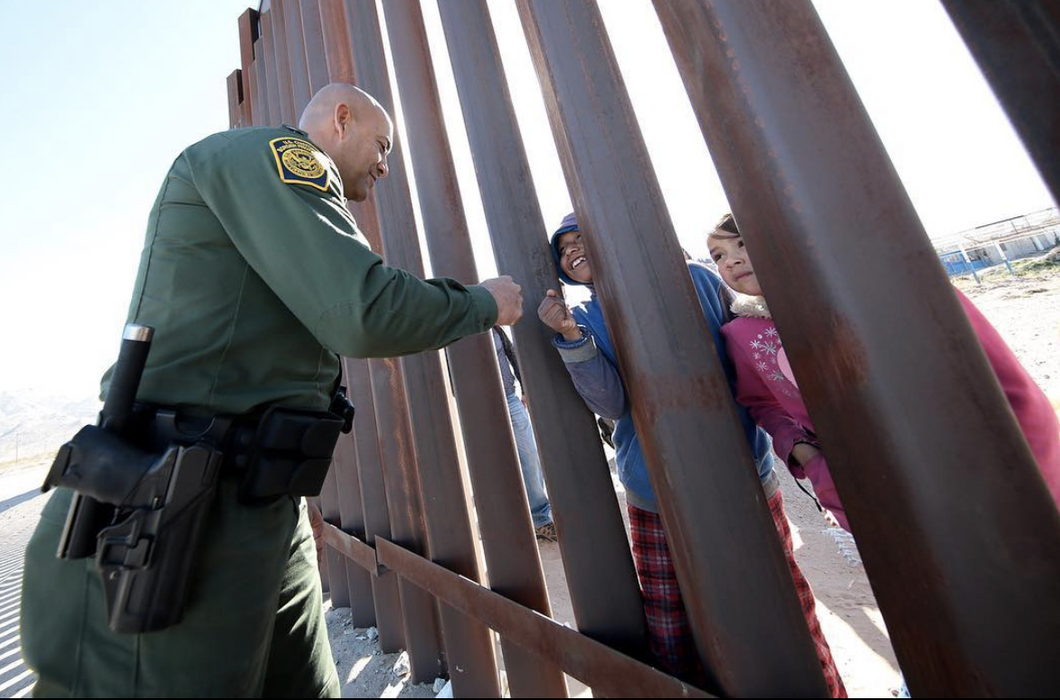The most polar opposite political philosophies both hate borders. I realize that this thesis is a big claim, but keep reading and it'll make sense.
Let's start at the more familiar end of the spectrum: capitalism. With true proponents of the liberal market, world capitalism and globalization are high hopes for the future. Within laissez-faire worldviews, there exists the belief that all governments should take a hands-off approach to economics, in pursuit of private innovation and profit.
The dream that businesses, strewn across the planet and untethered by government regulation, would interact in a global ecosystem of capitalism. Despite the lofty claims, this image is not that nutty! Today, virtually every western economy is organized along capitalist lines. Right now, globalization is rapidly occurring with communication flows in many different directions, thanks to the Internet. This worldwide vision is just a matter of further extending a certain reach as the "Western" momentum continues.
Global capitalism occurs when the free market ideology transcends these infamous national borders – the likes of which can be seen as petty and archaic in an operating system of world capitalism. Political experts cite global free enterprise as the "fourth epoch" of capitalism. Subsequent to the first three epochs, the Earth, once neatly categorized and standardized within countries to protect the people, now transcends national borders.
Global integration encourages the free transfer of goods on a world stage, which would exponentially increase the flexibility that corporations have to choose where and how they operate. Within a purely capitalist system, private entities own the means of production, with no place for government to nudge.
The private sector's already thin membrane would pop, and the market would become more than just a sector; it would be everything. Then, the corporations, that derive income from such ownership, utilize their existing wealth to create more wealth, globally. The basic driver for capitalistic work is the pursuit of profit and innovation rather than the old motivation of fear as seen in the borders that divide us.
This whole concept means that labor is a commodity – a great equalizer of mankind and womankind. There's real dignity in human work, no matter the nationality of the worker.
Bet you didn't think that the most real conservatives *actually* wanted to get rid of the border wall, did you?
Speaking of the worker, we are going to move onto Marxism! As far as that bastardized guy, Karl Marx, was concerned, through inevitable political movements and class upheavals, the human race's societies would evolve into an all-encompassing communistic system.
The Earth will be stateless and collectivist. That vision the long-term goal, at least. Marx thought that because capitalism had basically become global, the proletariat class of the world needs to work as a team, internationally, to avoid continued oppression and exploitation via the giant amoral market.
Come on, communism's rally cry is, "workers of the world, unite!". Obviously, Marx didn't think borders would be a "thing" in the future. Ideally, the workers would move their goods across their global society without the hassle of borders. It's a peaceful view. Such theory may treat world communism as a tranquil and prosperous end result, something almost anyone could endorse.
Borders would wither away in Marx's utopia.
We are alive at quite a time for borders! As an American, I hear screeching promotions and seething detestations concerning Trump's southern border wall every single day. In the postmodern (and post-election) era of severe nationalism and populism that seeps into pretty much everything, it can be difficult to trust anything we hear. Referring back to the political theories that shaped us can be very calmingly enlightening; the idealist theories of old dead dudes can act as a consistent voice amongst the shakiness and screaming matches on the borders.
While I don't personally subscribe to either of these abovementioned strict ideologies, I think it is a humanizing exercise to try to find the similarities in opposite political philosophies, especially in an age when politics are so entrenched in antagonism. Give it a try. You might find that we have a lot more in common than we thought.
















